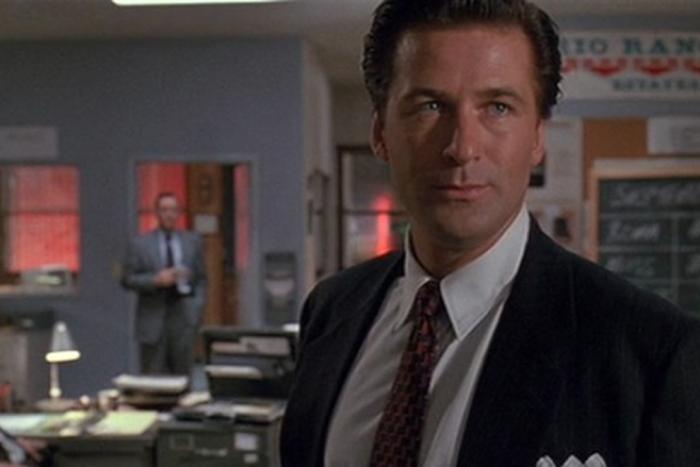My dad is a secular Jew and my mum is a lapsed Protestant, so our household didn’t really run to maxims on how to lead a moral life. Unless you count eating French fries off someone else’s plate and saying, “There are two kinds of people in this world: the quick and the hungry,” I’d say the overt ethical instruction in my childhood was minimal.
In my adult life, however, I feel as though ethical considerations are constantly yapping for my attention, like so many inconsistently housebroken spaniels. Partly it’s because I’m a writer and the whole project of being a writer is fundamentally unethical. Going around appropriating little bits of reality and then shaping them into something that has your name on it lays you open to charges of exploitation, misrepresentation, and invasion of privacy. Every other day I email my friend Connor to ask things like, “On a scale of one to ten, how incredibly offensive would it be for me to write a satirical cease-and-desist letter from gay culture to black megachurches saying they want their music and dance styles back?” (I’m not gay, black, or Christian.) Then Connor writes me back to ask if it’s okay for him to write a novel about transvestite Ethiopian refugees-turned-racecar drivers. (Actually, halfway through that sentence I got concerned about the ethics of publicizing Connor’s ethical question, so I made up the transvestite Ethiopians thing. Then I still felt weird about it so I went back and changed his name. Now I feel weird that in this putative non-fiction article I just substituted a bunch of made-up facts. See? This is what I’m talking about.)
While Connor’s and mine may not be standard ethical dilemmas, they are typical in that they involve a mix of logic and upset stomachs. “It’s strange to learn that disgust is the wellspring of moral behavior,” Mark Matousek writes in his new book, Ethical Wisdom: The Search for a Moral Life. As meat-eaters, the argument goes, humans evolved a finicky sense of smell and taste: we’re alert to the slightest whiff of putrefaction. Disgust, which we evolved to differentiate between good and bad, has carried over into our moral judgments as well, galvanizing humans with a longing for both physical and spiritual “purity.”
Homophobes often cite their own instinctive disgust reaction as “proof” that homosexuality is morally wrong. When Chick-Fil-A’s president made public comments against same-sex marriage earlier this year, activists proposed a “kiss-in” for LGBT couples in the franchise’s restaurants. An online discussion site called Sodahead (tagline: “Everyone’s got an opinion”)asked the question, “Will a homosexual kiss-in hurt the case for gay marriage?” The majority response was “YES, a gay kiss in public will turn most America’s stomach (sic).” American Girl commented, “Just the thought of it makes me ill,” and added a picture of a woman coughing in bed.
This disgust response, says a 2009 study published by the American Psychological Association, has evolutionary roots: “Individuals belonging to unfamiliar
groups, especially those who engaged in unusual practices regarding food, cleanliness, and sex, posed a higher risk of carrying novel (and therefore particularly dangerous) infectious agents. Perceiving such individuals would thus activate the behavioral immune system and cause avoidance behavior and the accompanying emotion of disgust.” In an article in Scientific American, Jesse Bering argues that homophobia rooted in a disgust reaction is actually good news, since disgust can be eliminatedthrough repeated exposure. If there are enough gay kiss-ins, eventually America’s stomach will calm down.
Which tells us that gut feeling is unreliable in ethical debate. Not only because untrained gut reactions can contribute to beliefs that contradict our legal consensus (i.e., “homosexuality is wrong”), but also, paradoxically, because these gut feelings are mutable. This is an uncomfortable realization: we like to believe that, as a society, our moral sense is progressing—we once believed that slavery was right, and now we believe it to be wrong, so we must be heading in the right direction. Now that it’s the consensus view, it seems obvious. But how did we manage to miss it for most of human history? How are some people still missing it today?
Matousek quotes well-known moral skeptic Richard Joyce: “There is no evidence that the human moral sensibility functions anything like a perceptual organ, detecting moral properties in the world.” Moral skepticism is a minority view in contemporary philosophy, and this may be because of the frightening repercussions of its thesis: that we can never know if any moral claim is true.
The frustrating part is that we have to act anyway. Even if I can’t prove that what I or my society believes to be morally righteous behaviour is in fact objectively so—whether or not an objectively “good” way to behave exists at all—I still have to decide whether or not to punch that guy who insulted my friend; whether to give to Médecins Sans Frontières or spend the money on pot.
I decided not to write the satirical cease-and-desist letter about the gay contribution to gospel music in black megachurches, mostly because Connor wrote me this:
“Usually I am in favour of just doing things even if they are offensive, but I don’t know, I feel like it maybe is high on the offensive meter? I think it would be funny, totally... but the reason it might leave a bad taste in my mouth is because, God, we (whites) like CONSTANTLY stole all kinds of shit from Black people! Didn’t basically Elvis and sort of a million other people steal all of rock and roll and jazz and gospel and all this other stuff from Black artists and then like, get super rich off it and never pay or acknowledge them?
Speaking on behalf of all gays, I’m not mad that they took it. I mean, I’m sort of mad if now today they are hating gay people and telling us to die in hell, and using our songs, that does just sort of add insult to injury. Um, good weird luck! Life is weird!”
That’s a real quote, although I cleaned it up a little bit. I haven’t asked him yet whether I can use it. Does this make me a bad person?





